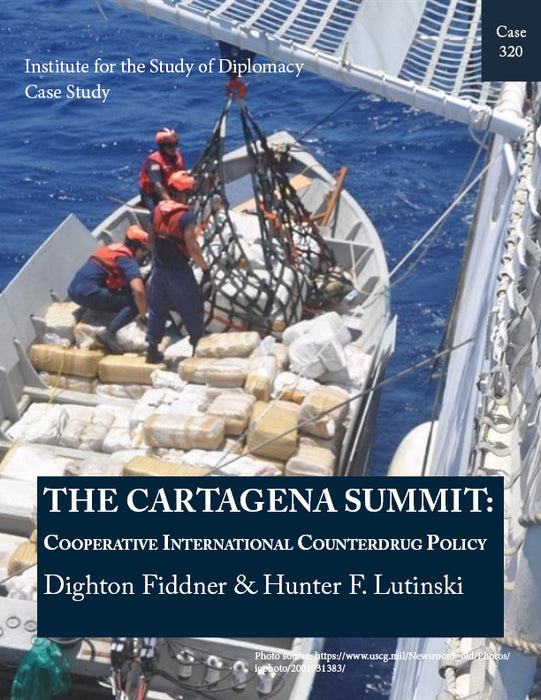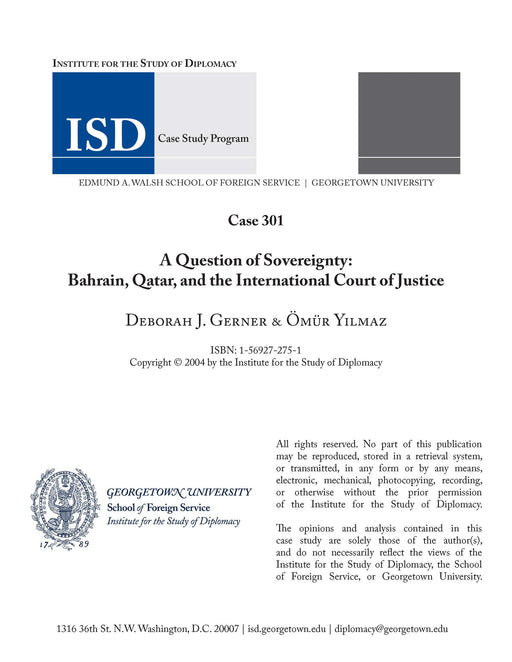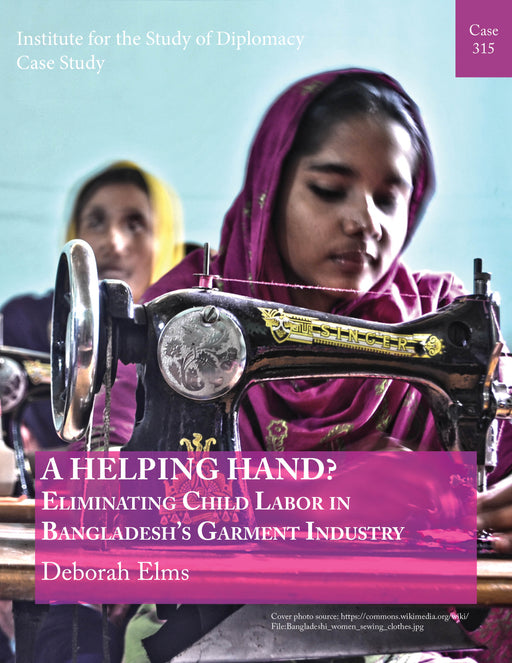Case 320 - The Cartagena Summit: Cooperative International Counterdrug Policy
Fiddner, Dighton and Hunter F. Lutinski
This case study explores the bilateral and multilateral diplomacy that made the 1990 Cartagena Drug Summit, attended by the heads of state of the United States, Bolivia, Colombia, and Peru, a success. The United States publicly admitted for the first time that its domestic demand was a major driver of the drug problem, while the Latin American drug-producing states conceded, also for the first time, that they also had a domestic narcotics problem. In addition, the four participants signed a regional multilateral agreement to combat drug trafficking, and pursue new tactics in the “War on Drugs.” Their’ rapport at the summit paved the way for ratification of the 1991 Andean Trade Promotion and Drug Eradication Act (ATPA).



